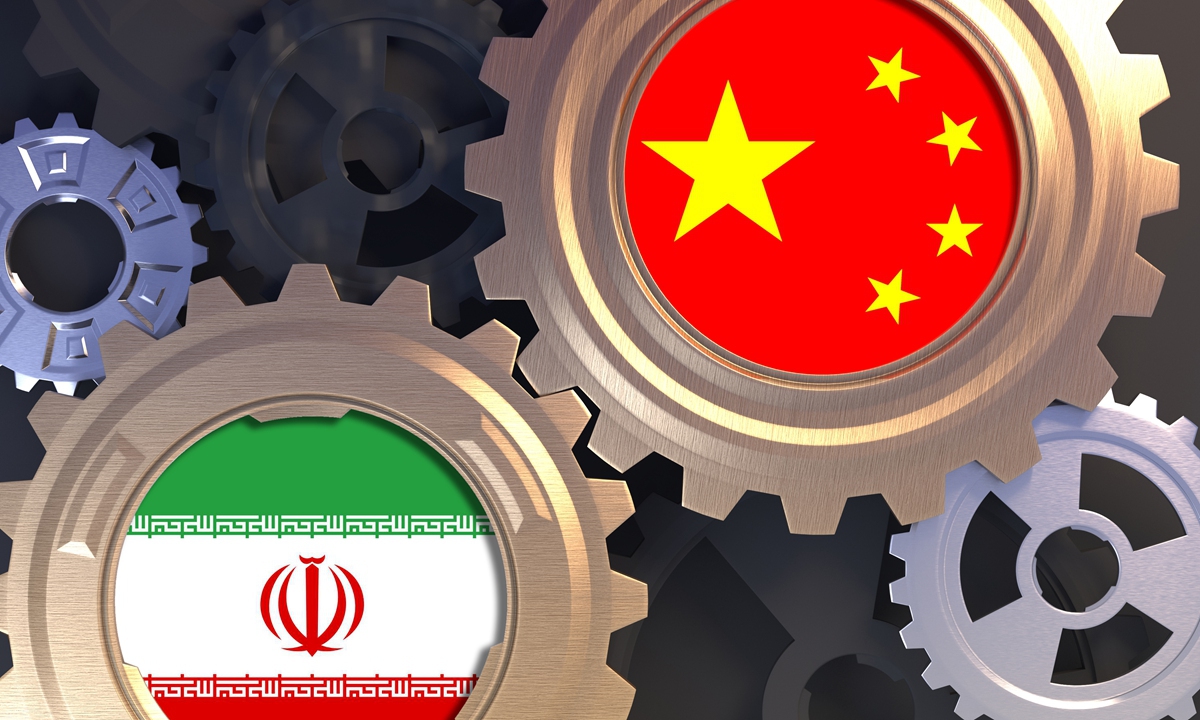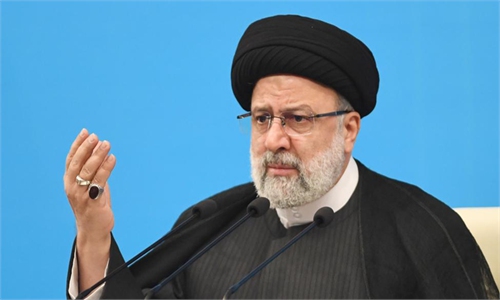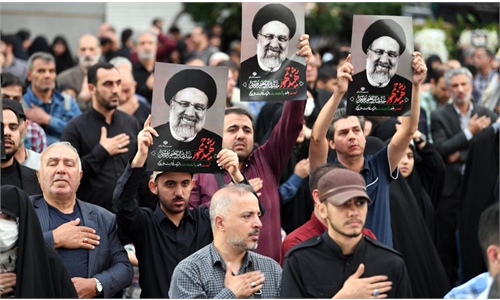
Photo: VCG
Some US forces will not miss any opportunity to sow discord between China and its partners. This time their target is China-Iran relations.
The Chinese version of Voice of America (VOA) published an article on Tuesday analyzing how the death of Iranian President Ebrahim Raisi will affect China-Iran relations, claiming that China is "hesitant" about the direction of China-Iran relations.
US media outlets, such as VOA, have not only failed to express concern about President Raisi's death, but are instead putting the focus on China. "This is indeed not about Iran having any problem with China or the other way round. Western media will always try their best to lead the discussion onto China and bash it somehow. Some of their accusations are groundless at all but simply out of vigilance and the desire to contain China," Li Weijian, vice president of the Chinese Association of Middle East Studies, told the Global Times.
At such a sensitive moment in the Middle East, the strong ties between China and Iran and their shared wish to keep enhancing the bilateral relations are invaluable. On Monday, Chinese President Xi Jinping expressed deep condolences and extended sincere sympathies to the family of President Raisi as well as the Iranian government and people, highlighting that the Chinese government and Chinese people cherish the traditional friendship between China and Iran, and the China-Iran comprehensive strategic partnership will continue to consolidate and develop. Chinese Foreign Minister Wang Yi also said that China is ready to continue providing any necessary support to Iran. The Iranian Embassy in China posted on Chinese social media platform Weibo on the same day expressing its gratitude to the Chinese government and people during this difficult time.
"The China-Iran relationship will not be affected by this incident in the slightest, because it is based on common interests and willingness for cooperation, and China has no reason to hesitate about China-Iran relations," Li added.
The reason why China-Iran relations are being targeted by US media is because Tehran is one of Washington's arch-rivals and China is the main target of the US' strategic containment. Out of a narrow-minded and distorted mentality, some US media outlets have expressed negative views on China-Iran relations, hoping to see China and Iran, the two "US adversaries," end their friendship and cooperation, so that the US can gain an advantage in the Middle East. It's another case of the US' unreasonable and arbitrary zero-sum mentality.
The US has taken too many actions to incite camp confrontation under the pretext of China-Iran relations, while having too little rational understanding of current changes in the global situation. When President Raisi visited China to strengthen cooperation in February last year, the US media also threw mud at China-Iran relations, claiming that Iran is frustrated about China's hesitancies about deepening its economic ties with Iran. In January, China and Iran held several discussions on the Red Sea crisis, and some Western media maliciously interpreted "China's efforts" as "China's pressing on Iran."
This in turn shows that the US attempts to demonize normal cooperation between China and Iran and try its best to offset China's "influence" in the Middle East due to the US' declining influence in the region.
Since President Raisi took office, China and Iran have witnessed tremendous progress in bilateral relations. China is one of the largest producers of industrial goods and Iran is an important energy producer. The two countries are highly complementary economically and both have a strong will to develop their economy. Over the years, many results of China-Iran cooperation have been achieved by overcoming US interference and sabotage.
The more sensitive the situation in the Middle East, the more joint efforts are needed in the international community to maintain regional stability. However, what some forces in the US are doing is exactly the opposite: They are expressing satire and warnings about the death of President Raisi, while grasping every opportunity to sow discord between other countries and Iran.
Lü Xiang, a research fellow of US studies at the Chinese Academy of Social Sciences, said China-Iran relations occupy an important position in China's foreign relations. "We also hope that Iran can further develop in an extremely complex external environment. This is an unchanged stance of China."
Moreover, the deepening cooperation between China and Iran has anti-hegemonic characteristics. The stability of China-Iran relations is conducive to promoting the development of multipolarity in the world and safeguarding the security and peace in the Middle East. Iran may still face a difficult external environment in the near future, but there is still huge space and potential for mutually beneficial cooperation between China and Iran, outside the US and Western blocs. The future development of China-Iran relations is certainly hard to be sabotaged by US and Western political forces.



